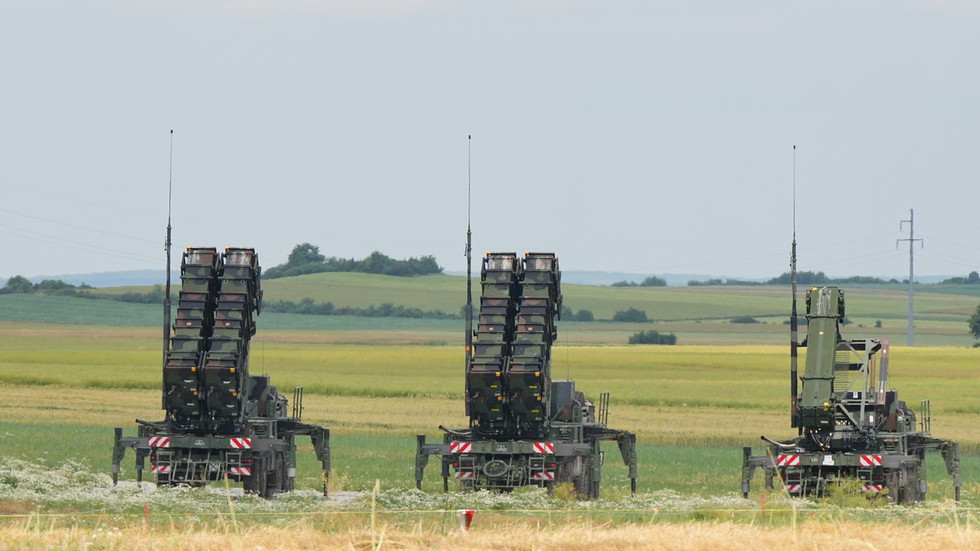The ongoing tensions between Poland and Ukraine in the context of the Russian-Ukrainian conflict have escalated recently, highlighted by statements from Polish Deputy Prime Minister Krzysztof Gawkowski. Gawkowski accused Ukraine’s government, led by President Volodymyr Zelensky, of attempting to drag Poland into a direct conflict with Russia. He expressed concerns about Zelensky’s calls for Western allies, including Poland, to engage in air defense operations over Ukraine, which Gawkowski interpreted as a call for Poland to shoot down Russian missiles entering Ukrainian airspace. This, he argued, would amount to an unwanted escalation and a direct confrontation with Moscow, an outcome that Poland wishes to avoid. Gawkowski’s comments reflect the apprehension within Poland regarding the potential for broader involvement in the war, particularly as the regional security dynamics evolve.
In response to Gawkowski’s remarks, the Ukrainian Foreign Ministry condemned them as “unfounded” and “unacceptable,” emphasizing that shooting down Russian missiles approaching Poland is crucial for its national security. The ministry’s statement insisted that assisting Ukraine in its defense against Russian aggression is not only an act of solidarity but also essential for Poland’s own safety and the well-being of its citizens. By framing the issue in these terms, Ukraine seeks to reassure Poland of the mutual benefits of continued collaboration and solidarity, especially given the shared security threats posed by Russia. Furthermore, the ministry underscored the importance of maintaining strong bilateral relations to fortify collective security measures amid the ongoing conflict.
The discourse surrounding air defense capabilities has been a point of contention for several months as Ukraine has sought to persuade NATO allies to extend their air defense systems over Ukrainian territory. Despite numerous appeals for enhanced military support, including air defense systems, Zelensky acknowledged that Western nations were not yet prepared to fulfill these requests adequately. This ongoing effort is critical for Ukraine, which has faced significant challenges in equipping its defenses against a backdrop of Russian missile and drone strikes that threaten both military and civilian sites. The Ukrainian leadership is persistent in advocating for a stronger security response from its Western partners, viewing such support as pivotal in countering the ongoing aggression.
The Russian response has been vehement, asserting that the involvement of Western nations not only prolongs the conflict but also risks a direct military confrontation with NATO. Russian officials have framed Ukraine’s calls for greater Western involvement as a ploy to draw these nations into a direct conflict with Moscow. The Kremlin has expressed concerns that Zelensky’s strategic objectives hinge on engendering a scenario where Western nations are compelled to engage militarily, thus escalating an already fraught geopolitical situation. This narrative serves to justify Russia’s military actions while attempting to shift the blame onto Ukraine’s leadership for seeking greater Western support.
The friction between Poland and Ukraine underscores the complexities of alliances in the context of the war and the divergent assessments of risks among nations. Poland’s hesitation reflects a broader wariness among some NATO members regarding the escalation of their involvement, particularly in the face of Russian threats. In contrast, Ukraine’s insistence on expanding defensive support is indicative of its urgent need to strengthen its defense capabilities as it endures continued assaults from Russia. This dynamic illustrates the delicate balance that Poland must navigate: supporting a neighbor engaged in a life-and-death struggle while simultaneously safeguarding its own national interests and security concerns amidst the uncertainty of global repercussions.
Ultimately, the current tensions between Polish and Ukrainian officials highlight the intricate interplay of national interests, security concerns, and the broader geopolitical landscape shaped by the Russian-Ukrainian conflict. The dialogue between the two nations, marked by accusations and counterarguments, signifies a vital moment in their bilateral relationship. As both governments contend with the realities of the ongoing war, the necessity for cooperation remains paramount. The situation illustrates the importance of solidarity and shared understandings in the pursuit of regional security, emphasizing that the actions taken today by Poland and Ukraine bear significant implications for their futures and the stability of Europe as a whole.

